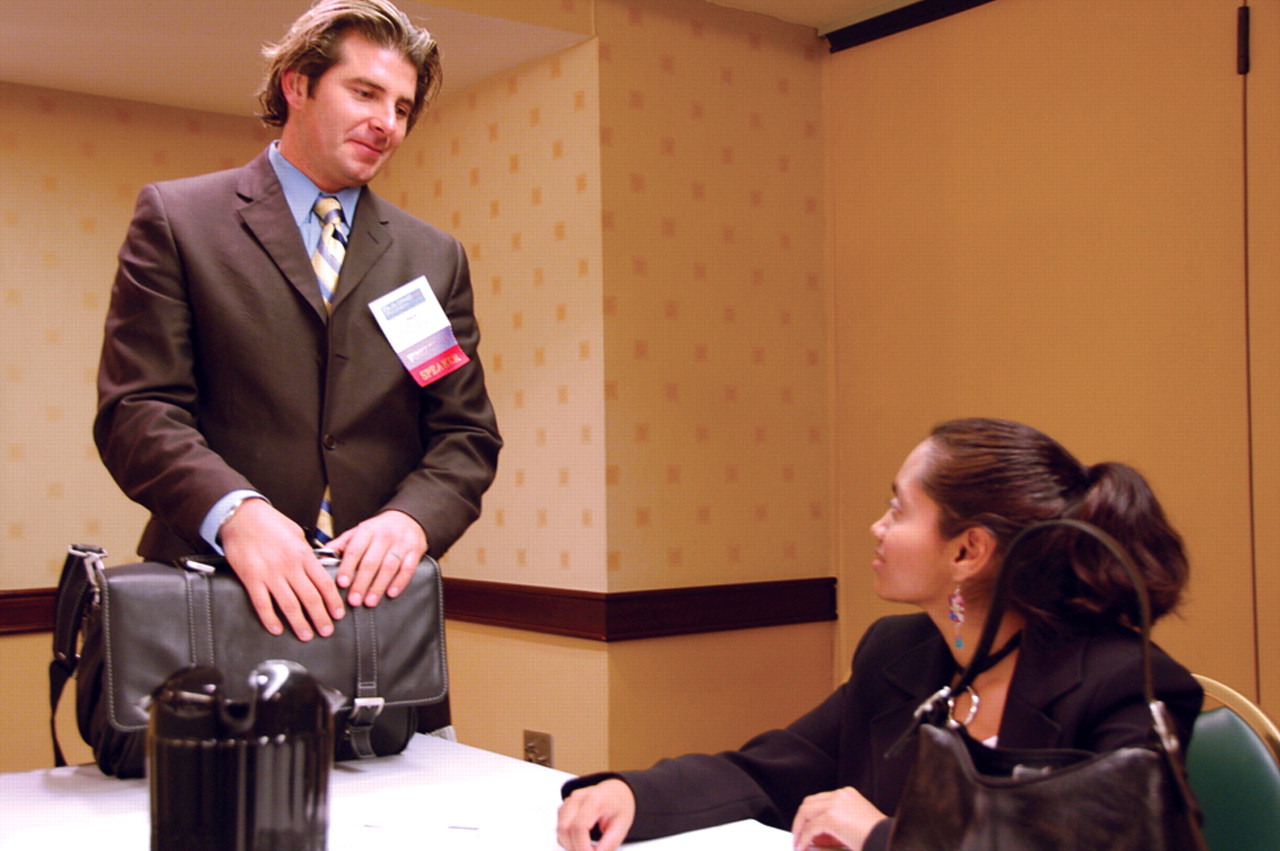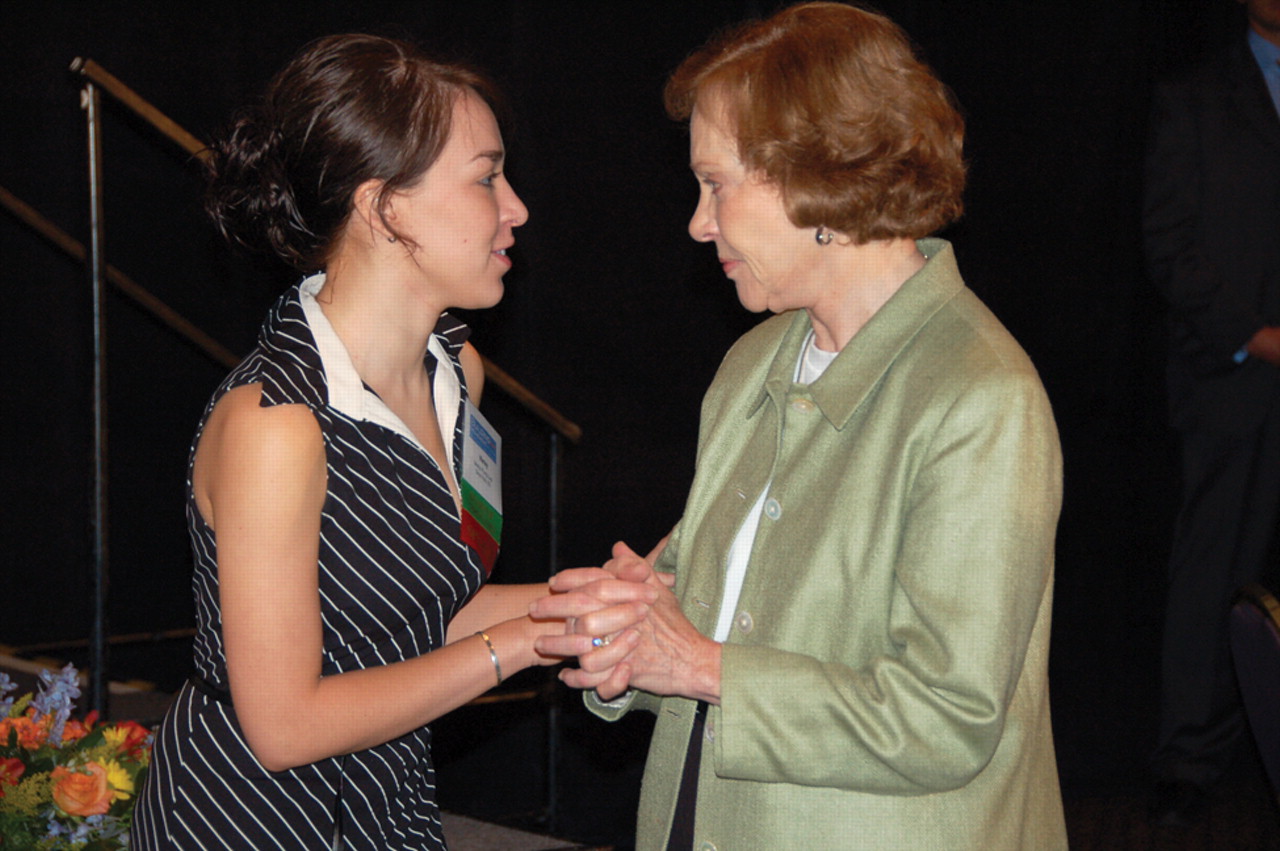At age 19, Martha Mora is already an old hand at public advocacy. She received psychiatric care following drug addiction and attempted suicide at 14, which allowed the teenager to not only recover but eventually assist other teens in their recovery. The experience also prompted her to advocate for more effective mental health policy.
Many adolescents being treated for mental illness, Mora said, feel hopeless and don't believe recovery is possible. The example she and other teens provide of youth who have overcome their disorder can provide hope for their peers that recovery is possible. Her involvement in making sure that message gets out has included the launch of a peer mental health support group for adolescents under the direction of a psychiatrist and mental health workers in Sacramento, Calif.
Speaking at the 2006 annual meeting of the National Mental Health Association (NMHA), Mora and other youth recovering from mental illness urged psychiatrists and mental health professionals to support “youth-guided systems of care.” These approaches incorporate adolescents with mental illness into deciding the design of their treatment plans from the onset of care.
“These kids are the biggest resource in their treatment plans,” Mora said.
Mora is one of the growing number of young people recovering from mental illness who have emerged as a powerful force for change, both in assisting in their own and others' recovery from such diseases.
Youth Help Direct Recovery
Although Mora and other youth advocates said some psychiatrists and mental health professionals resist an active role for children and adolescents in designing and advancing their treatment and recovery, local, state, and national mental health policymakers have begun to recognize its importance.
The 2003 final report of the President's New Freedom Commission on Mental Health identifies six goals for a transformed mental health system, including the goal that mental health care is consumer and family driven.
“It is assumed that as a child with serious emotional problems approaches later adolescence, the youth him or herself will take on the role of consumer,” stated the report.
Since the report, evidence has continued to mount that helping children remain mentally healthy or recover from mental illness requires more support from school administrators and government officials and better approaches to prevention and service delivery. A 2005 report noted that youth detention facilities are increasingly being used in a “warehousing role” for youngsters with mental illness. According to a National Council on Disability report, two-thirds of juvenile-detention facilities are holding youth primarily because appropriate mental health services are unavailable, not because the youngsters have been accused of or determined to have committed offenses (Psychiatric News, December 16, 2005).
A growing pool of data also indicates that youngsters are at high risk for a range of mental illnesses and related problems, including suicide. In 2004, 22.5 percent of youth aged 12 to 17 said they had received treatment or counseling for emotional or behavioral problems during the previous year, according to a survey by the Substance Abuse and Mental Health Services Administration (SAMHSA). Between 2002 and 2003, approximately one-fifth of students in elementary and middle schools had received some kind of service related to mental, behavioral, and emotional health challenges.
Peer-Based Approaches Important
New approaches are needed to reach children and adolescents with mental illness, said Anisha Imhoff-Kerr, a 21-year-old college student with bipolar disorder who presents mental health awareness courses at New Mexico high schools.
She said the peer approach has encouraged students to reveal traumatic assaults and other health concerns and get the professional help they need.
Susan Gallagher, executive director of the NMHA's Sacramento chapter, said that organization began to involve youth several years ago in efforts to design and implement new treatment and outreach approaches aimed at other adolescents. The biggest challenge her program faced was to find meaningful roles for youth in which they felt they were not token representatives whom the adults could ignore but instead were there to make an impact on policy or treatment.
Gallagher noted, however, that in the first meetings in which youth were included, some adult participants were afraid that the youngsters would“ ask a challenging or difficult question, [and] then some adults would say, `We can't have them back again.' ”
The efforts of her group and others to get adolescents involved in service planning and development continue to expand because reforming the mental health system and improving care depends on the ability to get those it serves to the policy table, Gallagher emphasized.
Effective Advocates Emerge
Health care leaders have realized that young people recovering from mental illness also can be effective advocates, capable of jolting jaded policymakers and politicians from statistical abstractions to the hard reality these kids often face.
“Youth advocates can be extremely candid and give an unvarnished account of their perspective, and I think that is extremely valuable,” said SAMHSA Administrator Charles Curie, M.A., in an interview with Psychiatric News. “It is important to listen and take into account what they have to say and to encourage them to speak out more.”
Investing in the Future
Lisa Pedersen, vice president of the board of directors of the Children and Adolescent Bipolar Foundation, said legislators are often unaware that many children are affected by mental disorders. “We need to spread the message that investing in mental health research is really about investing in our future,” Pederson told psychiatrist advocates at APA's 2006 Academic Consortium in Washington, D.C.
In May SAMHSA cosponsored the first National Children's Mental Health Awareness Day, which brought youth advocates recovering from mental illness to speak to members of Congress and their staffs.
Lorrin Gehring, a youth resource specialist in the federal government's Technical Assistance Partnership for Child and Family Mental Health, suffered from mental illness and attempted suicide as a child. She told attendees at the congressional forum that her recovery began after many false starts when a psychiatrist “really listened to me” and had her join a youth support group. She urged policymakers to support training for school personnel to help students with mental health concerns get help and not treat them as a discipline problem.
“Better care is more cost-effective,” she said, putting the complex issues of mental health in language to which every government official could relate. ▪


